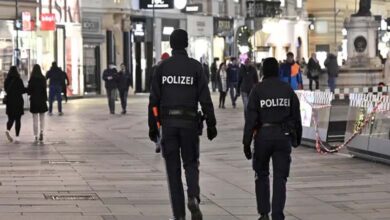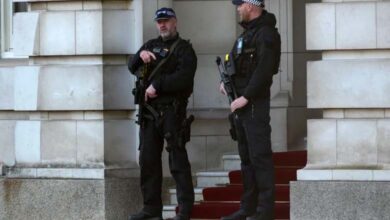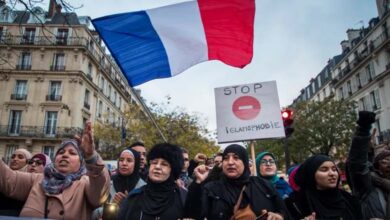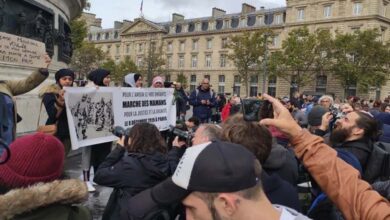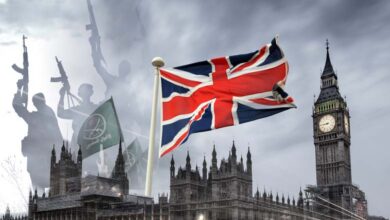Extremism knocks on France’s door amid political crisis
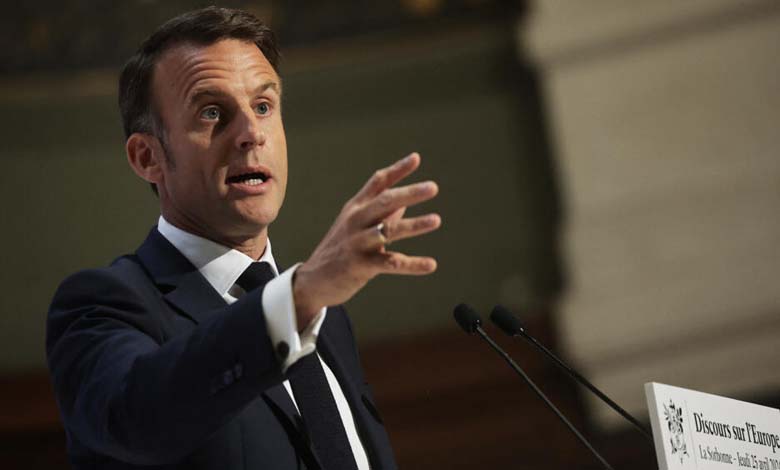
The incident comes as France faces a deep political crisis following the last parliamentary elections, which produced a divided assembly and made the formation of a stable government difficult. This has weakened the state’s ability to control public discourse and to manage rising social and identity tensions.
-
The Muslim Brotherhood in France Practices Judicial Terrorism
-
Muslim Brotherhood Infiltration Shakes France’s Left: Bleeding Inside Mélenchon’s Party
The car-ramming attack that occurred on Oléron Island, in western France, injuring five people—two of them critically—has once again drawn attention to the security concerns overshadowing the country, at a time of unprecedented political and social unrest.
French Interior Minister Laurent Nuñez stated on Thursday that initial investigations suggest the suspected driver “had adopted extremist ideas,” noting that “explicit religious symbols” were found in his home. He reportedly shouted “Allahu Akbar” during the attack. Authorities are awaiting the results of psychiatric evaluations and security assessments to determine whether the motive was religious or linked to mental instability.
Although the National Anti-Terrorism Prosecutor’s Office has not yet officially taken over the investigation, early indications suggest that the case may be part of a series of incidents reigniting fears of a renewed terrorist threat after several years of relative calm.
-
New Protests in France: Public Anger Rises Against Lecornu
-
The Muslim Brotherhood in France: The Book “Conspirators of Evil” Shakes the Political Scene
A political crisis weakening the internal front
The incident occurs as France grapples with a severe political impasse following recent legislative elections that resulted in a divided Parliament and persistent difficulties in forming a stable government. This fragmentation has limited the state’s ability to maintain control over public discourse and to address growing social and identity-based tensions.
Analysts believe that deep political polarization, declining trust in state institutions and security services, and rising social frustration have created a fertile ground for extremism to resurface. On one side, the far right exploits such attacks to advance anti-immigration rhetoric, while on the other, marginalized youth see radical ideologies as an outlet for their anger and exclusion.
-
France and Senegal: a balanced partnership beyond the colonial legacy
-
The Muslim Brotherhood and Education in France: the Ibn Khaldoun Crisis Unveils Hidden Funding Networks
In recent years, France has successfully dismantled dozens of terrorist cells, and the large-scale attacks that marked the 2015–2017 period have significantly decreased. Yet, recent intelligence reports warn that the terrorist threat has not disappeared but evolved, taking the form of “lone wolves” adopting extremist ideas without direct organizational ties.
French authorities now face a delicate balancing act: strengthening security without undermining civil liberties, and addressing social unrest without fueling populist or discriminatory narratives.
-
France and Africa’s Memory: The Compass of Acknowledgment Points Toward Cameroon
-
France’s Muslim Brotherhood… warnings over infiltration and calls to address its root causes
Experts suggest that the interior minister’s statements reflect the government’s effort to acknowledge the seriousness of the attack while avoiding panic or premature accusations against Muslim communities, particularly amid ongoing tensions over secularism and religious symbols in schools.
Another growing challenge lies in France’s suburban areas, where unemployment, poor public services, and social exclusion converge—conditions that extremist groups seek to exploit for recruitment.
-
France Clarifies: Our Recognition of Palestine Shows Hamas Is Wrong
-
France ends its chapter in Senegal… Dakar faces the challenges of sovereignty and security gaps
Pending the final results of the investigation, all hypotheses remain open. Yet, the attack has reignited debate over national security, especially as France approaches new elections and the migration and integration debates intensify.
Observers warn that any increase in individual acts of violence with religious or racial motives could revive memories of the fear that gripped France after the Paris and Nice attacks, further deepening divisions in an already polarized society.
As investigations continue, the French public awaits the results of the suspect’s psychiatric and security evaluations with caution, amid a growing sense that the nation is entering a critical phase where political crisis and security challenges converge, testing once again France’s resilience and unity.


